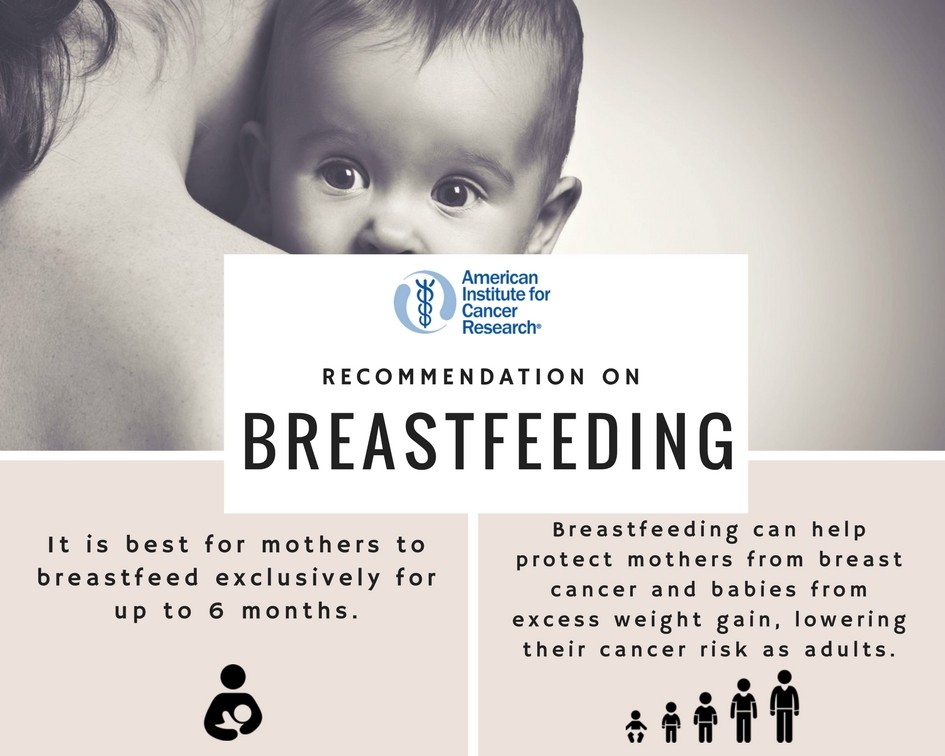Only 40 percent of babies meet the global recommendations for breastfeeding, according to a report released today to mark the start of World Breastfeeding Week.
As the analysis points out, there are many health benefits for breastfeeding – including cancer protection. AICR’s latest report found that breastfeeding lower the risk of breast cancer for mothers. Previous research suggests that babies who are breastfed are less likely to gain excess weight as they grow. Among adults, overweight and obesity increases the risk of 11 common cancers, including colorectal, ovarian and post-menopausal breast.
There are several possible ways by which breastfeeding may influence breast cancer risk. Lactation may delay a new mother’s menstrual periods, reducing lifetime exposure to hormones like estrogen, which is linked to breast cancer risk. The shedding of breast tissue after lactation may also help rid cells with DNA damage.
AICR joins the World Health Organization — among many others — to recommend that new mothers breastfeed exclusively for up to six months and then add other liquids and foods if they are able.
 The report out today is by UNICEF and WHO in collaboration with the Global Breastfeeding Collective. It evaluated 194 nations, finding that only 40 percent of children younger than six months are breastfed exclusively and only 23 countries have exclusive breastfeeding rates above 60 percent.
The report out today is by UNICEF and WHO in collaboration with the Global Breastfeeding Collective. It evaluated 194 nations, finding that only 40 percent of children younger than six months are breastfed exclusively and only 23 countries have exclusive breastfeeding rates above 60 percent.
An accompanying analysis calculates that an annual investment of $4.70 per newborn could increase the global rate of exclusive breastfeeding among children under six months to 50 percent by 2025. Meeting this target could save the lives of 520,000 children under the age of five, they say.
The UNICEF site has more on the global research, support and benefits of breastfeeding.





